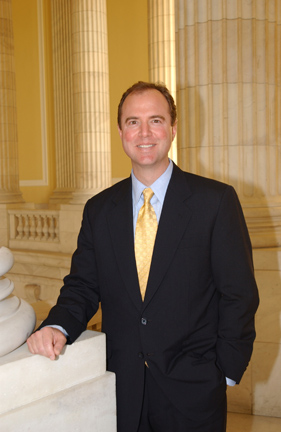America’s teachers play a critical role in shaping the next generation, in inspiring new scientists and doctors, entrepreneurs and engineers, artists, small business owners and educators. Eve and I, as well as our children, are the product of a fine K-12 public education and we are deeply grateful for the teachers in our lives who taught us and gave us the tools to succeed.
So many teachers go out of their way for their students – buying school supplies from their own hard-earned paychecks, ensuring students facing food-insecurity have meals and snacks, and being cheerleaders as students conquer difficult materials in the classroom. And in America, where gun violence in schools has become an epidemic thanks to Congressional inaction, some teachers have given their lives to protect their students. Our teachers deserve to be compensated fairly for the work they do. Yet, educator salaries are abysmally low across the nation.
Earlier this month, I reintroduced the RAISE Act to boost teacher compensation through refundable tax credits of up to $15,000. My bill would also double the educator tax deduction, which teachers can use to offset the cost of school supplies and expand eligibility to early childhood educators.
Such legislation is desperately needed. While the cost of living has gone up, teachers are earning less on average than they did a decade ago. Public school teachers during the 2020-21 school year in California made an average salary of $85,856 but many, especially those at schools that teach low-income students, made significantly less. For early childhood educators, the national median wage is below a living wage – at under $12/hour.
Paying teachers a good wage isn’t just beneficial for teachers – it also helps students. Teachers who are paid well are less likely to quit and, as a result, students are able to enjoy more consistency in the classroom, receive more individualized attention, and perform better. The Economic Policy Institute found that low wages are a contributing factor in the teacher shortage, as many can’t afford the financial strain and are forced to take a second job or leave the profession. A UCLA survey last year found that four out of 10 California teachers have considered leaving teaching – an alarming sign for the future of our education system. This impacts students disparately – there are much higher rates of turnover in high poverty schools and schools serving the largest percentages of students of color.
I’ve been advocating for better wages and conditions for educators since I got to Congress. I have and will continue to support robust funding for programs created by the Elementary and Secondary Education Act, which includes programming to invest in school districts, recruit high quality teachers and administrators and support bilingual education, ensuring that every child has access to a first-class public education. I have also supported full funding of the Individuals with Disabilities Education Act to provide comprehensive special education services for students. And as the weight of unaffordable childcare has become heavier for many Americans – particularly communities of color and in the aftermath of the COVID-19 pandemic, I have supported legislation that addresses equitable financial aid practices and increased funding to early education programs like Head Start.
Of course, teachers are not alone in facing financial challenges in our schools. I recently joined striking LAUSD workers on the picket line as they demanded better wages because all our education professionals – teachers, bus drivers, cafeteria workers – deserve to be compensated fairly.
We must pass the RAISE Act to help reduce the teacher wage gap, but it is just one step on the path to fair compensation. We need local, state and federal partners and initiatives to work together and prioritize teacher compensation – and we need it to be a bipartisan effort because paying our teachers shouldn’t be a left versus right issue. We need to attract the best and brightest to teach our kids and I will always push for more equitable salaries and more support and resources for our teachers.

